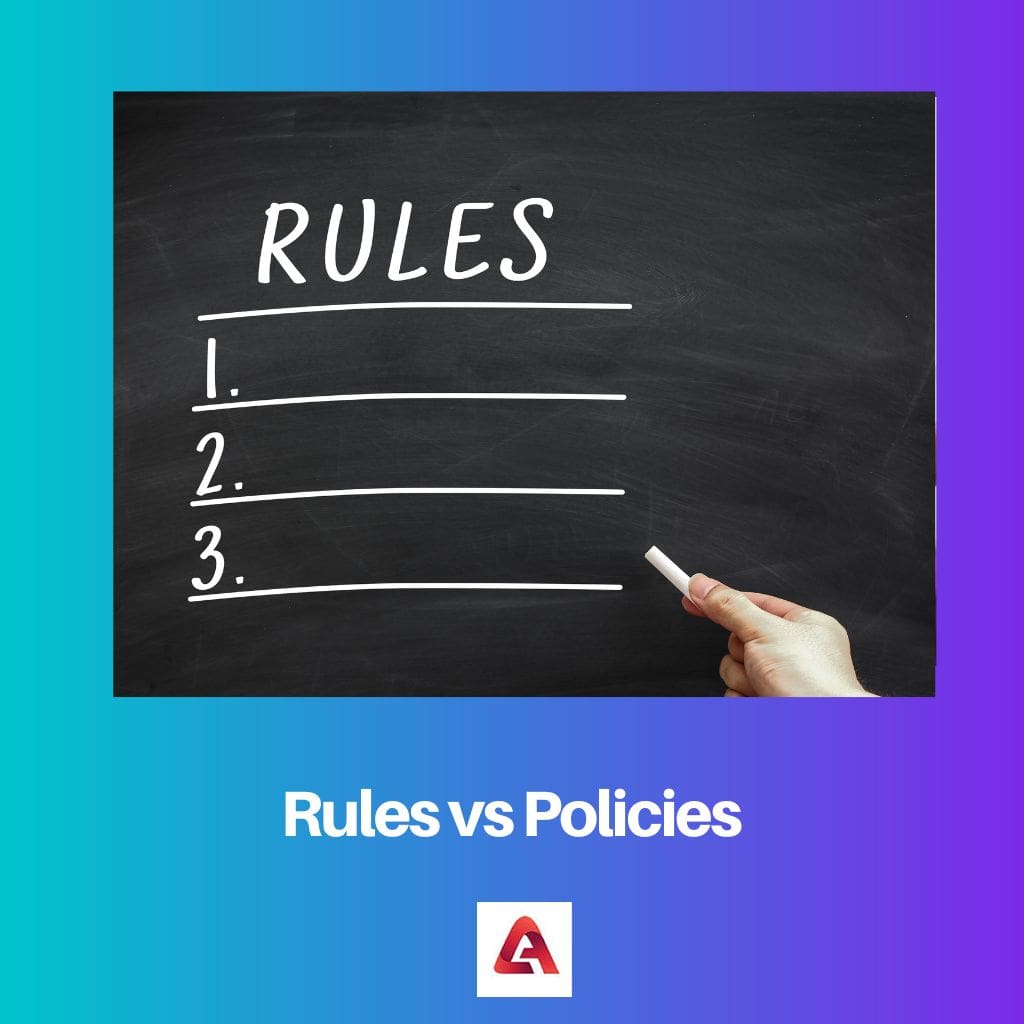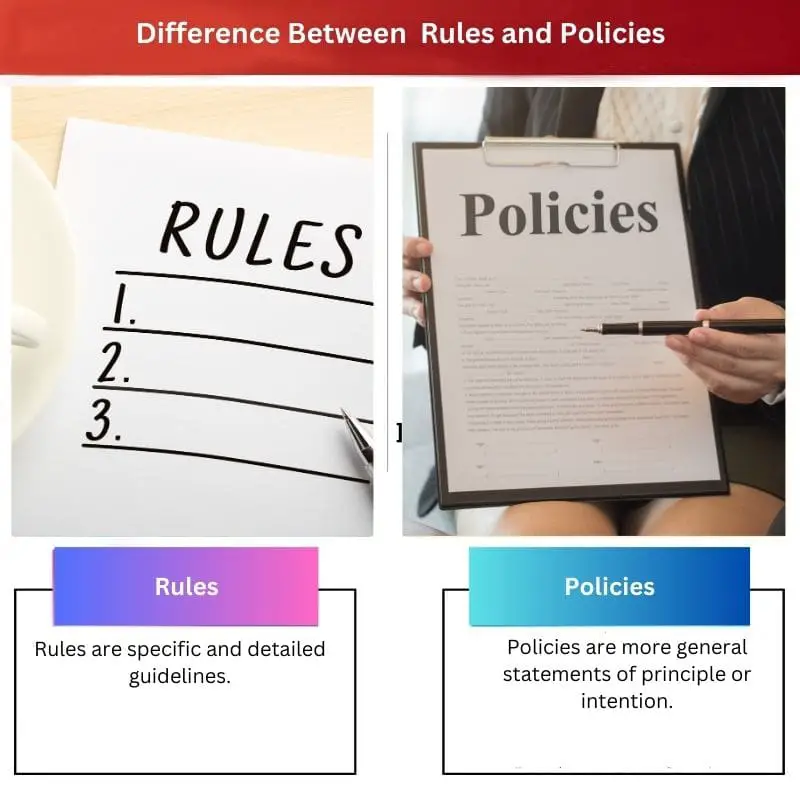Rules and policies are guidelines or regulations used to govern behavior or decision-making. However, there are some key differences between the two.
Rules are specific and detailed guidelines that are designed to ensure that people follow established procedures and behave in a way that is fair, consistent, and respectful of the rights of others.
They may be written down or verbal, and laws, internal policies, or through social norms and expectations may enforce them.
Rules are enforced through some punishment or penalty if they are broken, and they are used to promote safety, fairness, and efficiency.
Policies, on the other hand, are more general statements of principle or intention. They outline the values, beliefs, and goals of an organization, and they provide guidance on how to make decisions and take action in line with those values.
While policies may be enforced through some punishment or penalty, they are more focused on guiding behavior and decision-making rather than strictly enforcing compliance.
Policies may be written down or verbal, and they may be formal or informal. Governments, organizations, or individuals may create them, and external laws and regulations may influence them.
Understanding the differences between rules and policies is important for effectively navigating and participating in different social, organizational, and legal contexts.
While both serve important roles in governing behavior and decision-making, it is important to understand the specific nature and purpose of each in order to follow and adhere to them effectively.
Key Takeaways
- Rules are specific, concrete guidelines that dictate behavior, while policies are broader frameworks that outline organizational goals and principles.
- Rules are mandatory and enforceable, whereas policies can provide flexibility for interpretation and implementation.
- Policies help create a cohesive organizational culture, while rules ensure consistency and compliance with regulations and procedures.

Comparison Table
| Rules | Policies |
| Specific and detailed guidelines | General statements of principle or intention |
| Designed to ensure that people follow established procedures and behave in a way that is fair, consistent, and respectful of the rights of others | Outline the values, beliefs, and goals of an organization and guide how to make decisions and take action in line with those values |
| Enforced through punishment or penalty | May be enforced through punishment or penalty but are more focused on guiding behavior and decision-making |
| Strictly enforce compliance | Used to guide behavior and decision-making |
What are Rules?
Rules are specific guidelines or regulations used to govern behavior or decision-making. They are designed to ensure that people follow established procedures and behave in a way that is fair, consistent, and respectful of the rights of others.
Rules are enforced through some punishment or penalty if they are broken.
Rules can be found in many contexts, such as organizations, institutions, and social groups. For example, there may be rules in a school setting that dictate how students should behave, rules in a workplace that outline how employees should conduct themselves, or rules in a sports league that govern how games are played.
Rules are designed to promote safety, fairness, and efficiency; governments, organizations, or individuals may create them.
They can be written down or verbal and may be enforced by law, internal policies, or social norms and expectations.

What are Policies?
Policies are general statements of principle or intention that outline an organization’s values, beliefs, and goals and provide guidance on how to make decisions and take action in line with those values.
Unlike rules, which are specific and detailed guidelines that are enforced through punishment or penalty, policies are more focused on guiding behavior and decision-making rather than strictly enforcing compliance.
Policies can be found in many different contexts, such as government, businesses, schools, and other organizations. They may be written down or verbal, and they may be formal or informal.
Policies help an organization achieve its goals and objectives, and they may cover a wide range of topics, such as employee behavior, customer service, privacy, health and safety, and environmental sustainability.
Governments, organizations, or individuals may create them, which may be enforced through internal policies or external laws and regulations.

Main Differences Between Rules and Policies
- Rules are specific and detailed guidelines, while policies are more general statements of principle or intention.
- Rules are designed to ensure that people follow established procedures and behave in a way that is fair, consistent, and respectful of the rights of others, while policies outline the values, beliefs, and goals of an organization and provide guidance on how to make decisions and take action in line with those values.
- Rules are enforced through punishment or penalty, while policies may be enforced through punishment or penalty but are more focused on guiding behavior and decision-making.
- Rules strictly enforce compliance, while policies are used to guide behavior and decision-making.
- Rules are narrower in scope and apply to specific behaviors or actions, while policies may cover a wider range of topics and areas of concern.
- Rules may be created by governments, organizations, or individuals, while organizations create policies.
- Rules may be written down or verbal, while policies are documented in writing.
- Rules may be enforced by law or external policies, while external laws and regulations may influence policies.

- https://www.jstor.org/stable/1598947
- https://www.pdcnet.org/phr/content/phr_1955_0064_0001_0003_0032
- https://jamanetwork.com/journals/jama/article-abstract/380907
- https://www.sciencedirect.com/science/article/pii/S0167404804000331
